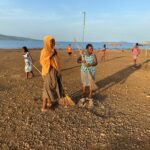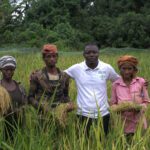Climate Change Advisors Ghana (CCAG), a non-governmental organization (NGO) based on Cape Coast, has been established to promote climate change mitigation, adaptation, environmental sustainability, and renewable energy in Africa.
In Ghana’s high forest and transition zones, the NGO also wants to help the country protect biodiversity, improve smallholder farmer livelihoods, and reduce emissions from land-use changes.
Dzifa Ahadzi, the Co-founder and Executive Director of CCAG, said at the inauguration that climate change had gotten little attention in the country and that it required extra effort to combat harmful environmental practices that impacted the environment. Because of the disastrous effects of climate change on the country’s agriculture and other areas of the economy, he said it was past time for stakeholders to act quickly. “Climate change has a tremendous influence on our environment, and we need to take steps to mitigate it as quickly as possible. This NGO is ready to help governments and other stakeholders achieve this aim by offering advocacy, research, policy analysis, capacity development, training, and policy direction.”
Mr. Ahadzi stressed the necessity of multi-stakeholder participation in climate-friendly measures to improve education. To provide timely insights and minimize disasters, he stressed that stakeholders must work closely together.
Dr. Samuel Ofori, a guest speaker at the event, urged key players in the agriculture sector to take immediate steps to mitigate the effects of climate change on agriculture. He noted that African agriculture was heavily reliant on natural weather and that climate change posed a significant threat to the sector.
Dr. Ofori continued, “For the government to significantly reduce the impact of climate change on the country’s agricultural sector, stakeholders must respond quickly to the growing threat and understand the issues around what to do in terms of survival.” “The agriculture that we do in Africa is dependent on natural weather, and we are in a situation where the natural weather is gradually changing, so you can’t plan on what to do or plan for agriculture because of what will happen, which is all the more reason why we must act quickly to avoid any mishap.”
He recommended that the government and other stakeholders take practical initiatives such as implementing legislation to strengthen the battle against ecologically hazardous activities, educating individuals in the agriculture industry, and adopting local methods that promote healthy farming practices.
Source: Africanharvesters.com
April 27, 2022.















